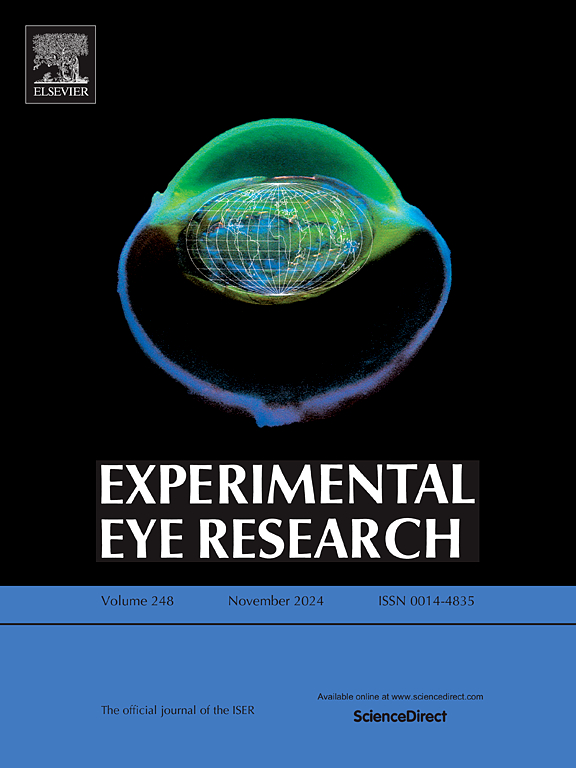Spermidine mitigates blue-light-induced corneal injury by alleviating oxidative stress and restoring autophagy impairment
IF 3
2区 医学
Q1 OPHTHALMOLOGY
引用次数: 0
Abstract
This study investigated the protective efficacy of spermidine on corneal epithelium exposed to photodamage from artificial blue light (BL). After six weeks of BL exposure, the rabbit cornea exhibited epithelial injury and delayed wound healing accompanied by downregulation of spermidine, as identified through metabolomic analysis. Pathways related to autophagy and the antioxidant response were implicated in this process. In vitro, spermidine mitigated BL-induced reductions in viability and proliferation of human corneal epithelial cells, decreased cell death, and enhanced colony formation. Spermidine also partially reversed BL-induced mitochondrial dysfunction, oxidative stress and autophagy impairment. Furthermore, topical administration of spermidine eye drops reduced epithelial injury in the rabbit cornea under BL exposure, demonstrating benefits in promoting cell proliferation, accelerating wound healing, and maintaining antioxidant capacity and autophagy.
亚精胺通过减轻氧化应激和恢复自噬损伤来减轻蓝光诱导的角膜损伤。
本研究探讨了亚精胺对人工蓝光(BL)光损伤角膜上皮的保护作用。通过代谢组学分析发现,暴露于BL 6周后,兔角膜出现上皮损伤和伤口愈合延迟,并伴有亚精胺的下调。与自噬和抗氧化反应相关的途径参与了这一过程。在体外,亚精胺减轻了bl诱导的人角膜上皮细胞活力和增殖的降低,减少了细胞死亡,增强了集落形成。亚精胺还能部分逆转bl诱导的线粒体功能障碍、氧化应激和自噬损伤。此外,局部使用亚精胺滴眼液可减少BL暴露下兔角膜上皮损伤,显示出促进细胞增殖、加速伤口愈合、维持抗氧化能力和自噬的益处。
本文章由计算机程序翻译,如有差异,请以英文原文为准。
求助全文
约1分钟内获得全文
求助全文
来源期刊

Experimental eye research
医学-眼科学
CiteScore
6.80
自引率
5.90%
发文量
323
审稿时长
66 days
期刊介绍:
The primary goal of Experimental Eye Research is to publish original research papers on all aspects of experimental biology of the eye and ocular tissues that seek to define the mechanisms of normal function and/or disease. Studies of ocular tissues that encompass the disciplines of cell biology, developmental biology, genetics, molecular biology, physiology, biochemistry, biophysics, immunology or microbiology are most welcomed. Manuscripts that are purely clinical or in a surgical area of ophthalmology are not appropriate for submission to Experimental Eye Research and if received will be returned without review.
 求助内容:
求助内容: 应助结果提醒方式:
应助结果提醒方式:


